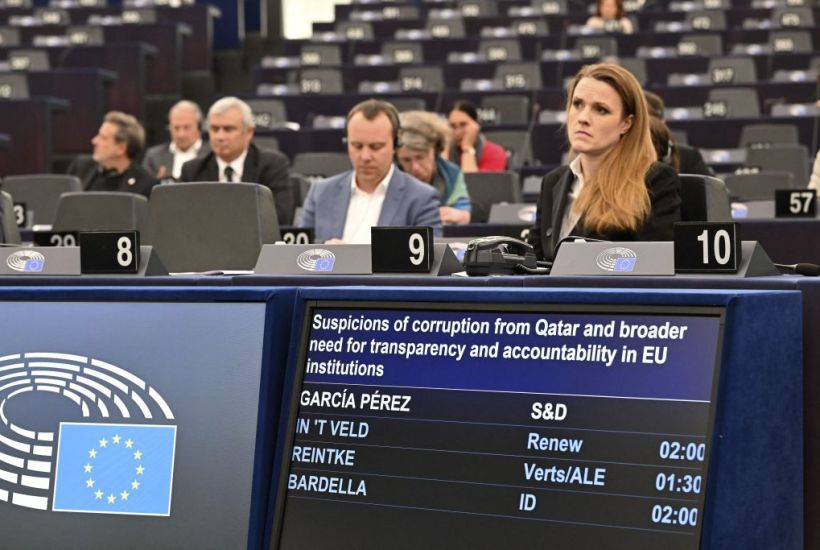The Qatargate scandal haunting the European Union is not merely about corrupt politicians and officials. The deplorable role of a non-governmental organisation is at the heart of the scandal, which highlights the interlocking of NGOs and EU parliamentarians and decision makers.
The most interesting feature of the corruption scandal surrounding the detention of the EU parliament’s vice-president Eva Kaili and politicians and EU apparatchiks is their connection to a supposedly squeaky-clean NGO called Fight Impunity. The
Already a subscriber? Log in
Subscribe for just $2 a week
Try a month of The Spectator Australia absolutely free and without commitment. Not only that but – if you choose to continue – you’ll pay just $2 a week for your first year.
- Unlimited access to spectator.com.au and app
- The weekly edition on the Spectator Australia app
- Spectator podcasts and newsletters
- Full access to spectator.co.uk
Or




















Comments
Don't miss out
Join the conversation with other Spectator Australia readers. Subscribe to leave a comment.
SUBSCRIBEAlready a subscriber? Log in